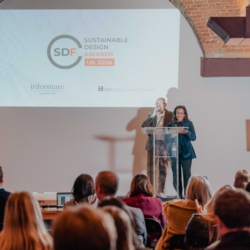To provide the best experiences, we use technologies like cookies to store and/or access device information. Consenting to these technologies will allow us to process data such as browsing behaviour or unique IDs on this site. Not consenting or withdrawing consent, may adversely affect certain features and functions.
The technical storage or access is strictly necessary for the legitimate purpose of enabling the use of a specific service explicitly requested by the subscriber or user, or for the sole purpose of carrying out the transmission of a communication over an electronic communications network.
The technical storage or access is necessary for the legitimate purpose of storing preferences that are not requested by the subscriber or user.
The technical storage or access that is used exclusively for statistical purposes.
The technical storage or access that is used exclusively for anonymous statistical purposes. Without a subpoena, voluntary compliance on the part of your Internet Service Provider, or additional records from a third party, information stored or retrieved for this purpose alone cannot usually be used to identify you.
The technical storage or access is required to create user profiles to send advertising, or to track the user on a website or across several websites for similar marketing purposes.
 The government is set to abandon plans to introduce a legal right for employees to “switch off” outside working hours, in a move aimed at easing the burden of Labour’s employment reforms on businesses. The policy was a key element of Sir Keir Starmer’s pledge to establish a “new deal for working people.” Although it was not included in the Employment Rights Bill currently passing through Parliament, ministers had previously committed to implementing a right to switch off in the future. (more…)
The government is set to abandon plans to introduce a legal right for employees to “switch off” outside working hours, in a move aimed at easing the burden of Labour’s employment reforms on businesses. The policy was a key element of Sir Keir Starmer’s pledge to establish a “new deal for working people.” Although it was not included in the Employment Rights Bill currently passing through Parliament, ministers had previously committed to implementing a right to switch off in the future. (more…)



































